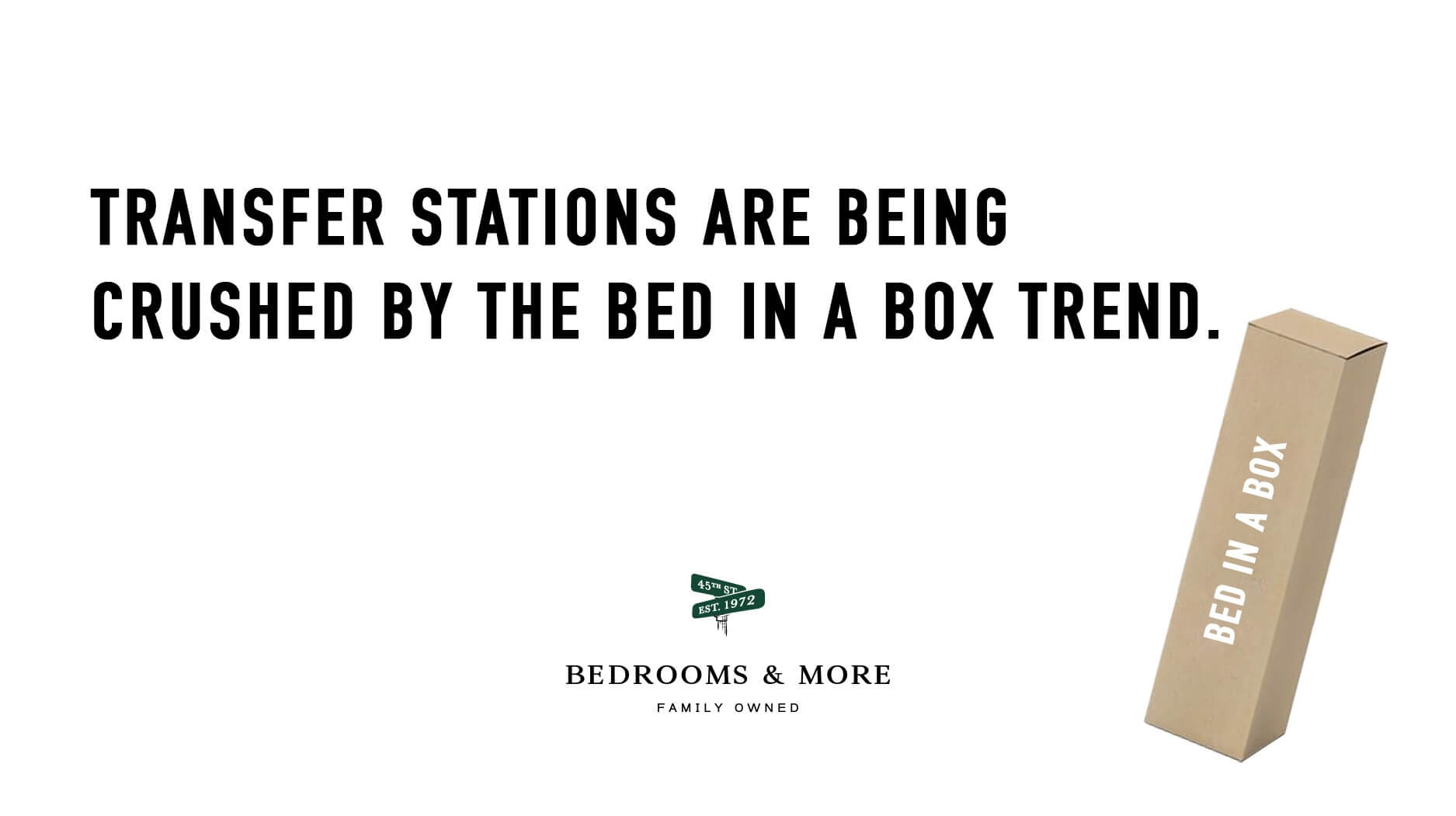Mattresses
A Mattress Recycling Disaster – The Bed in a Box Trend
Seattle has a problem with mattresses dumped at transfer stations. A summit was held to explore solutions. As the “Bed in a Box” trend has grown, so has the problem. The average ton of mattress waste takes up 19 times the volume of regular garbage. These large lightweight items make for innumerable issues in managing waste. Mattress Recycling is woefully rare. Only 5% of mattresses stay out of landfills.
Mattresses were already an issue with the industry shift to one-sided, can’t flip mattresses; because the life expectancy is just 1/3 that of two sided mattresses. It has become worse with UPSable mattresses. Consumers are disposing of 1 and 2 year of old mattresses that have lost their comfort.
The Culprits
Casper, Avocado, Tuft & Needle, Purple, etc. must weigh under 150 lbs (including all packaging) in order to be UPSable; even in the king size. Forced to build beds with light weight materials, their inevitable outcome is a short lifespan. Heavy weight foam is more resistant to compression and retains its shape longer. Restricted to using lightweight materials, Bed in a Box companies can’t build mattress as durable as their customers want/expect.
These factors have led to a negative environmental impact; a disposable mattress trend. Most “Bed in a Box” products are going to the dump in just a couple years. It’s reprehensible.
The Event
The summit was about keeping beds out of the dump. In attendance were representatives from several local and regional mattress stores/chains, as well as charities. The main goal: to identify a low cost method for recycling mattresses. The charities came because they want to prevent people from leaving mattresses at donation sites. They cannot accept any more mattresses (see linked bed in the box blog). The chain stores want used mattresses out of the marketplace, so people buy new product.
Some Solutions
One great thing I learned is that Vancouver, BC has set up a recycling program where no mattresses go to the dump; instead recycling 100% of them. Coils are melted down for the metal, foam is sanitized, chipped and used for carpet pad/insulation. Vancouver accomplished this with a tax on every mattress sold. Private parties interested in the dismantling mattresses and boxes were also in attendance. Despite the labor intensive nature of this process, these companies are currently able to charge $11 per piece (less than the $20 tax in Vancouver, BC).
Our Situation – Mattress Recycling
It is currently voluntary for mattress stores to recycle old mattresses. We design durable two-sided mattresses, and try to find new homes for the used mattresses we remove from consumers’ homes. They are made available to people who cannot afford beds. We pay $11 to keep every remaining mattress out of the dump.
